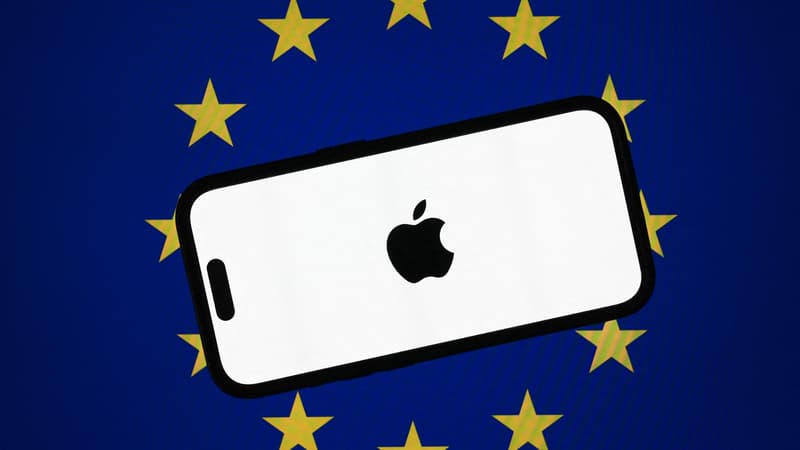Apple continues to virulently challenge the European Digital Markets Act (DMA). In force since March 2024, it imposes obligations on technology giants to maintain healthy competition between digital players. Rules that greatly displease Tim Cook’s company, which, according to Bloomberg, has resorted to the Court of Justice of the European Union to send a message.
Before the institution, Apple challenged the DMA on three points, the first being the obligation to make its iPhone interoperable with devices designed by competitors, such as watches or connected headphones. According to the company, this potentially poses a risk to the privacy, security and intellectual property rights of users.
Services that should escape the DMA
Apple also believes that DMA rules should not be imposed on its App Store because its App Store does not constitute a “single service” within the meaning of the law. Law that, however, covers “widespread and commonly used online services, provided or offered by large platforms,” as the Vie Publish site recalls. And application stores are part of this, considered an “intermediation service.”
Let us remember that Apple has already been sanctioned for not having respected the DMA with its App Store. In April, the EU fined it 500 million euros, accusing it of preventing developers from directing users to cheaper offers outside its app store. A sanction that the company challenged.
Finally, the American giant considers that its messaging service, iMessage, should not have been subject to an evaluation to determine whether it should be subject to the DMA. For Apple, the question did not arise because iMessage is not a service that generates revenue directly for the company.
Serial attacks
Faced with this new attack, the European Commission did not take long to respond, through its lawyer, Paul-John Loewenthal. Apple’s “absolute control” over the iPhone has allowed it to generate “exceptional profits in complementary markets where its competitors are at a disadvantage and cannot compete with it on equal terms,” he said.
“Thanks to this control, Apple has secured the loyalty of more than a third of European smartphone users,” added the lawyer, arguing that the company is the only one that has the keys to this “walled garden” and decides who can access it and offer them products and services.
This new attack comes a few weeks after the company urged the EU to repeal the WFD, believing, among other things, that the law had caused a degradation of the services provided to users of its products. He had asked for its replacement “with a more appropriate legislative text.” The European Commission then responded by stating that it had “no intention” to grant Apple’s wish.
Source: BFM TV


